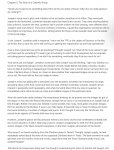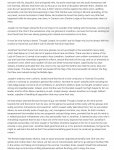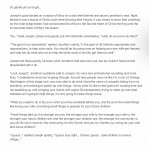Greatshield17
Claritas Prayer Group#9435
I need specific advice here. As I've mentioned before in another thread, I'm writing a novel in which I hide the fact that certain characters are Autistic until chapter 5. I'm hoping that NTs/CLs (as I call them and as they're later referred to in the novel) in the audience gets hooked on the book and are interested in the characters before then, so that they'll keep reading afterwards.
In chapter 2, shown here below, I tell things from the point of view of Joseph, a key character in the book. This here is the first time the audience will experience things from an Autistic character's point of view, (As chapter 1 is told from the point of view of a CL) I want to make sure I both, get this right and at the same time, not fall into the trap of doing things like telling instead of showing and doing other things to turn the non-Autistic audience off from the book.
Apologies if some of the of the views expressed in this scene are in disagreement with one's own:



In chapter 2, shown here below, I tell things from the point of view of Joseph, a key character in the book. This here is the first time the audience will experience things from an Autistic character's point of view, (As chapter 1 is told from the point of view of a CL) I want to make sure I both, get this right and at the same time, not fall into the trap of doing things like telling instead of showing and doing other things to turn the non-Autistic audience off from the book.
Apologies if some of the of the views expressed in this scene are in disagreement with one's own:



